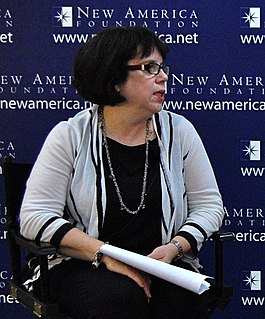
Sir Timothy John Berners-Lee, also known as TimBL, is an English computer scientist best known as the inventor of the World Wide Web. He is a Professorial Fellow of Computer Science at the University of Oxford and a professor at the Massachusetts Institute of Technology (MIT). Berners-Lee proposed an information management system on 12 March 1989, then implemented the first successful communication between a Hypertext Transfer Protocol (HTTP) client and server via the Internet in mid-November.
Sports journalism is a form of writing that reports on matters pertaining to sporting topics and competitions. Sports journalism started in the early 1800s when it was targeted to the social elite and transitioned into an integral part of the news business with newspapers having dedicated sports sections. The increased popularity of sports amongst the middle and lower class led to the more coverage of sports content in publications. The appetite for sports resulted in sports-only media such as Sports Illustrated and ESPN. There are many different forms of sports journalism, ranging from play-by-play and game recaps to analysis and investigative journalism on important developments in the sport. Technology and the internet age has massively changed the sports journalism space as it is struggling with the same problems that the broader category of print journalism is struggling with, mainly not being able to cover costs due to falling subscriptions. New forms of internet blogging and tweeting in the current millennium have pushed the boundaries of sports journalism.

Deborah Blum is an American journalist and the director of the Knight Science Journalism program at the Massachusetts Institute of Technology. She is author of books including The Poisoner's Handbook (2010) and The Poison Squad (2018), and has been a columnist for The New York Times and a blogger for Wired.

Science journalism conveys reporting about science to the public. The field typically involves interactions between scientists, journalists, and the public.

Catherine Lucy Hawking is an English journalist, novelist, educator, and philanthropist. She is the daughter of the theoretical physicist Stephen Hawking and writer Jane Wilde Hawking. She lives in London, and is a children's novelist and science educator.
The Sir Arthur Clarke Award is a British award given annually since 2005 in recognition of notable contributions to space exploration, particularly British achievements. Nominations for the awards are made by members of the public, with shortlists drawn up by a panel of judges, who also choose the winner. Sir Arthur C. Clarke chose a special award independently of the public nominations.

The Knight Science Journalism program offers 9-month research fellowships, based at its headquarters at the MIT School of Humanities, Arts, and Social Sciences, to elite staff and freelance journalists specializing in coverage of science and technology, medicine, or the environment. Fellows are chosen from an international application pool in a competitive process each spring, and reside in Cambridge, Massachusetts, for two semesters of audited coursework and research at MIT, Harvard, and surrounding institutions.

Alberto Ibargüen is President and CEO of the John S. and James L. Knight Foundation in Miami, Florida. He is the former publisher of The Miami Herald and El Nuevo Herald in Miami, Florida. Under his leadership, The Miami Herald won three Pulitzer Prizes; El Nuevo Herald won Spain's Ortega y Gasset Prize for excellence in journalism.
High Country News is a monthly independent magazine based in Paonia, Colorado, that covers environmental, social, and political issues in the Western United States. Syndicated stories from High Country News have appeared in The New York Times, The Atlantic, Rolling Stone, and other national publications. The non-profit High Country News media organization also produces a website, special reports, and books.

Angela Saini is a British science journalist, broadcaster and the author of books, of which the third, Superior: The Return of Race Science, was published in 2019. Her work has appeared in Science, Wired, The Guardian, The New Humanist and New Scientist. She is also a presenter on BBC radio.
Tony Bartelme, an American journalist and author, is the senior projects reporter for The Post and Courier in Charleston, South Carolina. He has been a finalist for four Pulitzer Prizes.

Sir Arthur Charles Clarke was an English science-fiction writer, science writer, futurist, inventor, undersea explorer, and television series host.
Clark Boyd is an American radio journalist. He was the award-winning technology correspondent for The World, a daily global news program created by Public Radio International (PRI), and co-produced by PRI, the BBC World Service, and WGBH Boston. He has been with the program from 1996 to 2018.
Thomas Zeller Jr. is an American journalist who has covered poverty, technology, energy policy and the environment, among other topics, for a variety of publications, including 12 years on staff as a writer and editor at The New York Times. He has also held staff positions at National Geographic Magazine and The Huffington Post.
The John S. Knight Journalism Fellowships at Stanford is a paid 10-month journalism fellowship at Stanford University. It is one of 20 such programs available in the US for working journalists. It is connected to the School of Humanities and Sciences.
Usha Lee McFarling is an American science reporter who is an Artist In Residence at the University of Washington Department of Communication. She won a 2007 Pulitzer Prize for Explanatory Reporting.
The Knight-Wallace Fellowship is an award given to accomplished journalists at the University of Michigan. Knight-Wallace Fellowships are awarded to reporters, editors, photographers, producers, editorial writers and cartoonists, with at least five years of full-time, professional experience in the news media.

Faye Flam is an American journalist. She has written for Science Magazine and wrote two weekly columns for The Philadelphia Inquirer, including one on sex and one on evolution. Flam wrote a book on the influence of sex on human evolution and society. She teaches science writing and lectures on communication to scientific forums, and is a journalism critic for the MIT Knight Science Journalism Tracker.

Sir Martin Nicholas Sweeting is the founder and executive chairman of Surrey Satellite Technology Ltd (SSTL). SSTL is a corporate spin-off from the University of Surrey, where Sweeting is a Distinguished Professor who founded and chairs the Surrey Space Centre.
Undark Magazine is a non-profit, editorially independent online publication exploring science as a "frequently wondrous, sometimes contentious, and occasionally troubling byproduct of human culture." The name Undark is a deliberate reference to a radium-based luminous paint product, also called Undark, that ultimately proved toxic and, in some cases, deadly for the workers who handled it.









